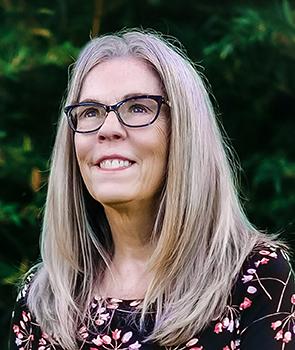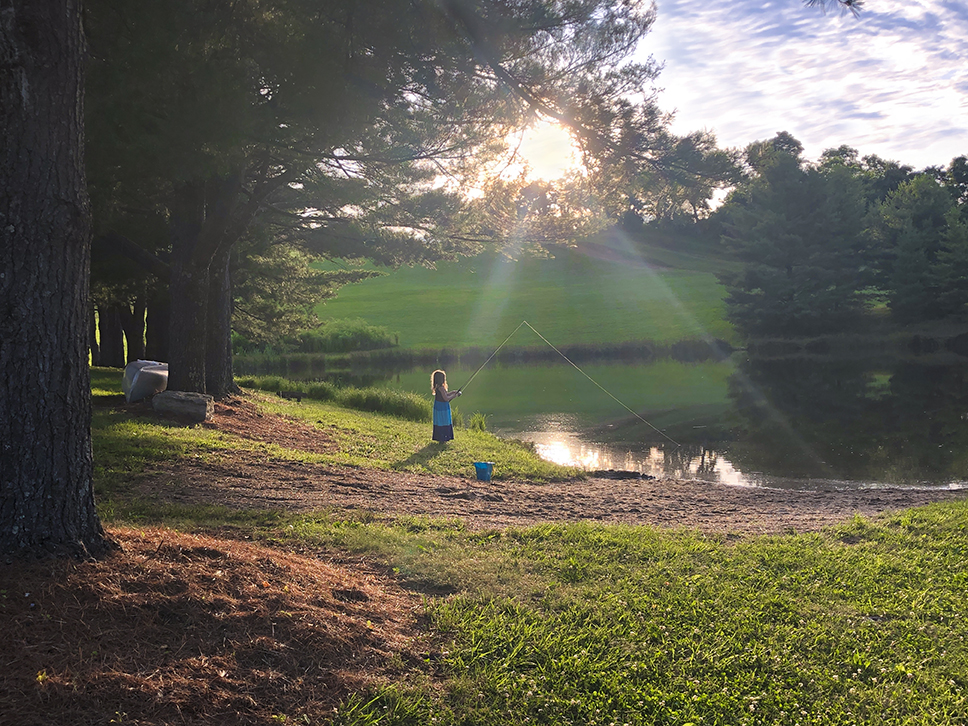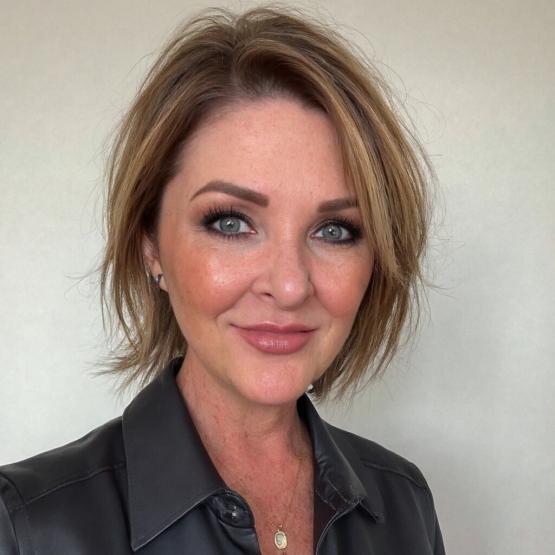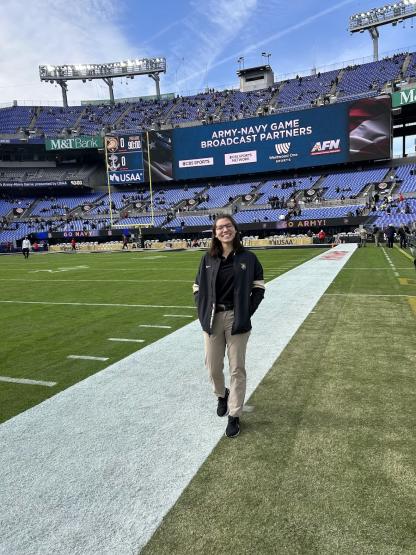
For the third time, Ohio Gov. Mike DeWine has named Kari Gunter-Seymour, BFA ’94, MA ’16, as Ohio’s Poet Laureate. The path to such an achievement wasn’t easy, however.
The ninth-generation Appalachian was a young, single mother when she moved back to Athens from Meigs County, living in assisted housing with a very small child and weaving baskets to make ends meet. She eventually saved enough money to take a creative writing class at OHIO in hopes of finding a path toward a better life for her son.
Gunter-Seymour gets emotional talking about her life during those years and the help and encouragement she received, which eventually led her to enroll full-time and earn a degree in graphic design. After working in that field for a few years, she returned to the University as an employee and earned her master’s degree in commercial photography. Both disciplines continue to inform her work as a poet today.
“A photograph is a moment in time—that’s a poem. Graphic design is about organizing information so people see what you want them to see—that’s a poem,” Gunter-Seymour notes. Gunter-Seymour sees poetry everywhere, creates it out of dirt and memory, grit and duty.

Nowhere is that more evident than in “DIRT SONGS,” her fourth full poetry collection, released one month after her two-year Laureateship began in January 2024. In its pages, she writes deftly of her generations-long Appalachian heritage, always lifting its people into normalcy, taking words like “warsh” and phrases like “fixin’ to go” into the mainstream.
Such work is partly in defiance of pushback she saw after being named Poet Laureate, with attitudes that a “rural, hillbilly poet” wasn’t a proper choice by those who perhaps forget that 32 of Ohio’s 88 counties are considered part of Appalachia. To that end, she aims to make space for poets “who nobody knows or reads,” she says, by getting through doors and bringing others through with her.
In her youth in Southeast Ohio, she “ran pretty wild—not in a bad way, just on my own,” Gunter-Seymour says. “My bicycle, swimming in the creek, all of us girls like a gang. We held each other’s secrets.” All of this comes through in “DIRT SONGS,” whose themes of perseverance, resiliency, strong women and attachment to place are met with a sexual energy that comes from writing about her experiences as a young woman. “I still have that mentality of wildness and needing to be on my own,” she says. “To roam, to be loud and just a little rough around the edges.”
Readers of Gunter-Seymour’s poetry, both in “DIRT SONGS” and in her previous collections (not to mention the anthologies she’s edited), will find themselves called to find the rough edges within themselves, too. As novelist Jacinda Townsend observes, “[t]o hear one of Gunter-Seymour’s dirt songs is to listen, intently, to the symphony of the human condition.”
Child of the Large-Beaked Bird
from “DIRT SONGS,” by Kari Gunter-Seymour
The crows are up to no good,
tapping the tin roof like it’s
Miss Glover’s School for Awkward Girls,
all juke, jig and ja-ja.
My granddog doesn’t approve,
not the rooftop trapeze or the tomfoolery
in the garden, mischievous pecks
gouged around the scarecrow’s eyes.
They’re toying with me.
I’ve tried to bribe them—
fresh fruit, cat food, sequins,
propped myself nearby,
full lotus, trilling.
Why subject myself and this prized
pooch to the insufferable?
The Indigenous say their ancestors
came to earth in the form of Crow.
I come to them, my sack of sorrows
laid open—perch on soil
my ancestors stole, sing dirt songs.
Feature photo by Kari Gunter-Seymour, BFA '94, MA '16






